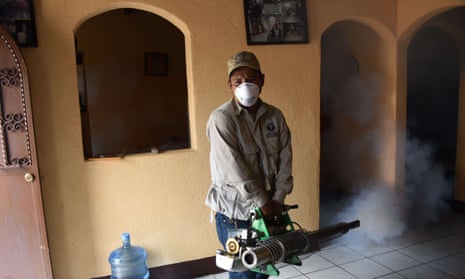The World Health Organisation (WHO) has urged caution about linking the Zika virus with a rare nerve disorder called Guillain-Barré which health officials in Colombia have blamed for three deaths.
“Yes, we have seen cases of death from Guillain-Barré syndrome; three have been reported. But I would urge caution” on linking it with Zika, a WHO spokesman, Christian Lindmeier, said.
Colombia last Friday said three people had died after contracting the Zika virus and developing Guillain-Barré syndrome, a rare disorder in which the immune system attacks the nervous system, causing weakness and sometimes paralysis.
Cases of the syndrome have increased in tandem with the outbreak of the Zika virus sweeping Latin America.
“We must really be cautious and not mix the two too much,” Lindmeier said at a press briefing, as the link has not yet been proven by experts.
Colombia is the second country, after Brazil, that has been hardest hit by the Zika outbreak, with more than 20,000 cases, including more than 2,000 pregnant women.
The WHO has declared a global medical emergency to combat Zika and individual countries and regions are beginning to mobilise.
Barack Obama on Monday asked for more than $1.8bn in emergency funds to tackle the fast-spreading Zika virus in the United States and beyond.
In Latin America, Zika has been linked to a rapid rise in the number of children born with microcephaly – abnormally small heads and brains.
There is currently no cure or vaccine for the virus which, in most people, causes mild symptoms.
The virus has also raised concerns about the summer Olympics in Brazil in August.
The WHO has advised to protect against mosquito bites but has not advised restrictions on travel to the affected countries.

Comments (…)
Sign in or create your Guardian account to join the discussion